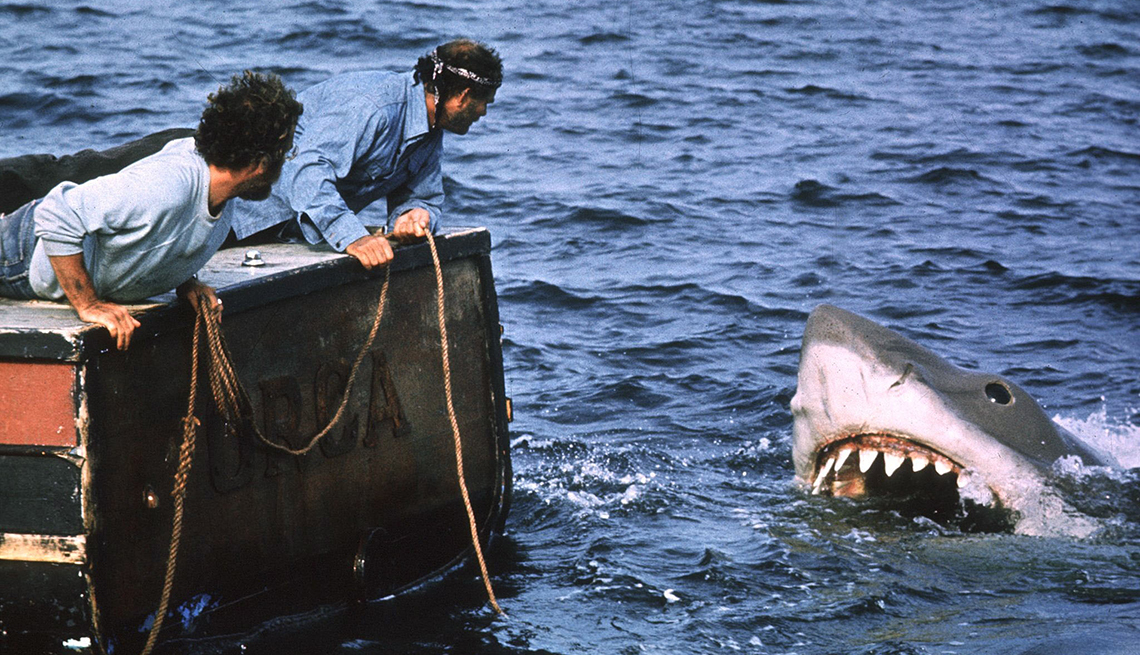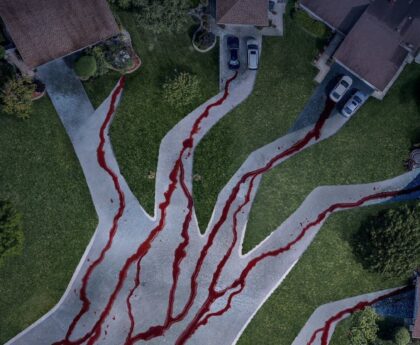Even though the annual Shark Week has come and gone, we still can’t stop thinking about Jaws, the great film by Steven Spielberg.
Prior to the release of Star Wars just two years later, Jaws held the record for highest grossing film of all time. Jaws is a masterpiece that pioneered the contemporary blockbuster with its thrilling story and stellar acting.
The story begins with a young woman being attacked by a shark while going nude on Amity Island, a popular tourist destination in New England. Martin Brody, the police chief in charge of the area after the tragic event (Roy Scheider), spends the whole must-see film trying to close down all of the beaches in the region. Larry Vaughn (Murray Hamilton), the mayor of the town, overrides him because he is concerned about losing cash from tourists. For this reason, Brody joins forces with Marine biologist Matt Hooper (Richard Dreyfuss) and professional shark hunter Quint (Robert Shaw) to capture the man-eating creature themselves, putting themselves in mortal danger in an effort to protect those around them.
Even though it came out in 1975, the film Jaws has left a generation of people with galeophobia (irrational fear of sharks), prompting many to ask, “Jaws is not based on a true story, right?”
The Decider team did some digging online and uncovered some interesting facts about Jaws’s background that are sure to give shark-phobes the willies.

Does Jaws Have Any Real-Life Inspiration?
Jaws is based on the novel of the same name by Peter Benchley, which was published just one year prior to the release of the Steven Spielberg classic.
Benchley wrote this book due to his keen interest in sharks and their complicated relationship with mankind, telling the story of three men and their journey to terminate a great white shark that infiltrates a beach town in The Hamptons, ultimately putting both residents and tourists in danger. Benchley claims to have written Jaws after learning about the adventures of a professional shark hunter named Frank Mundus, which was confirmed by the BBC. They note that while Benchley did avidly follow the adventures of Mundus, the writer took things a step further in a newer introduction to Jaws (the novel), saying, “Did sharks…stay in one area, killing and killing again? Darn right. Remember the shark that went up a New Jersey river in 1916 and killed four people? Time and again, I confidently assured interviewers that every single incident described in Jaws…had actually happened.”
In an interview Travel Channel says was with People Magazine, though no such interview currently exists online, Benchley reportedly said that he read an item in a newspaper in 1964 that inspired the story. In the paper, he read of a fisherman who harpooned a 4,500-pound great white shark off Long Island and wondered what would happen if it attacked people.
Slightly more verifiable, though still no longer available on the internet, is an interview that Benchley did with the London Daily Express mere days before he passed away at age 65. In it, as quoted by the New York Times, Benchley said flatly that, “‘Jaws’ was entirely a fiction.”
That doesn’t mean shark attacks are fiction, though! There were a number of shark attacks that plagued the Jersey Shore in 1916, as Benchley noted earlier.
The infamous Jersey Shore shark attacks of 1916 were a series of incidents that occurred between July 1st and July 12th, killing four people and injuring one all within the New England area. Just like we see in Jaws, these incidents caused panic in the town, leading to numerous shark hunts due to the mass hysteria among residents and tourists alike.
While Jaws is fiction, as Benchley noted, it can be confirmed that the iconic film has aspects of truth riddled throughout its two-hour running time.





